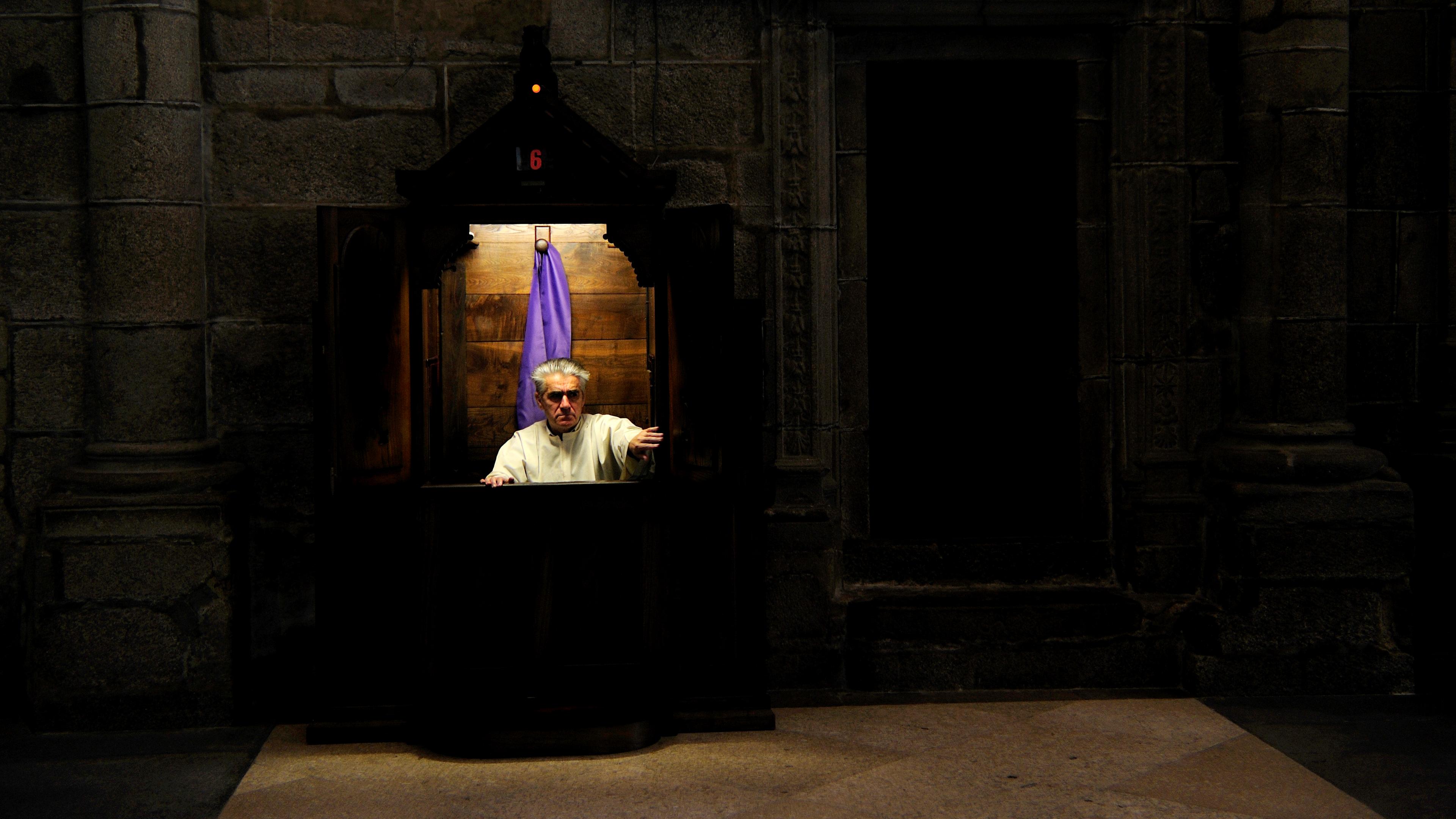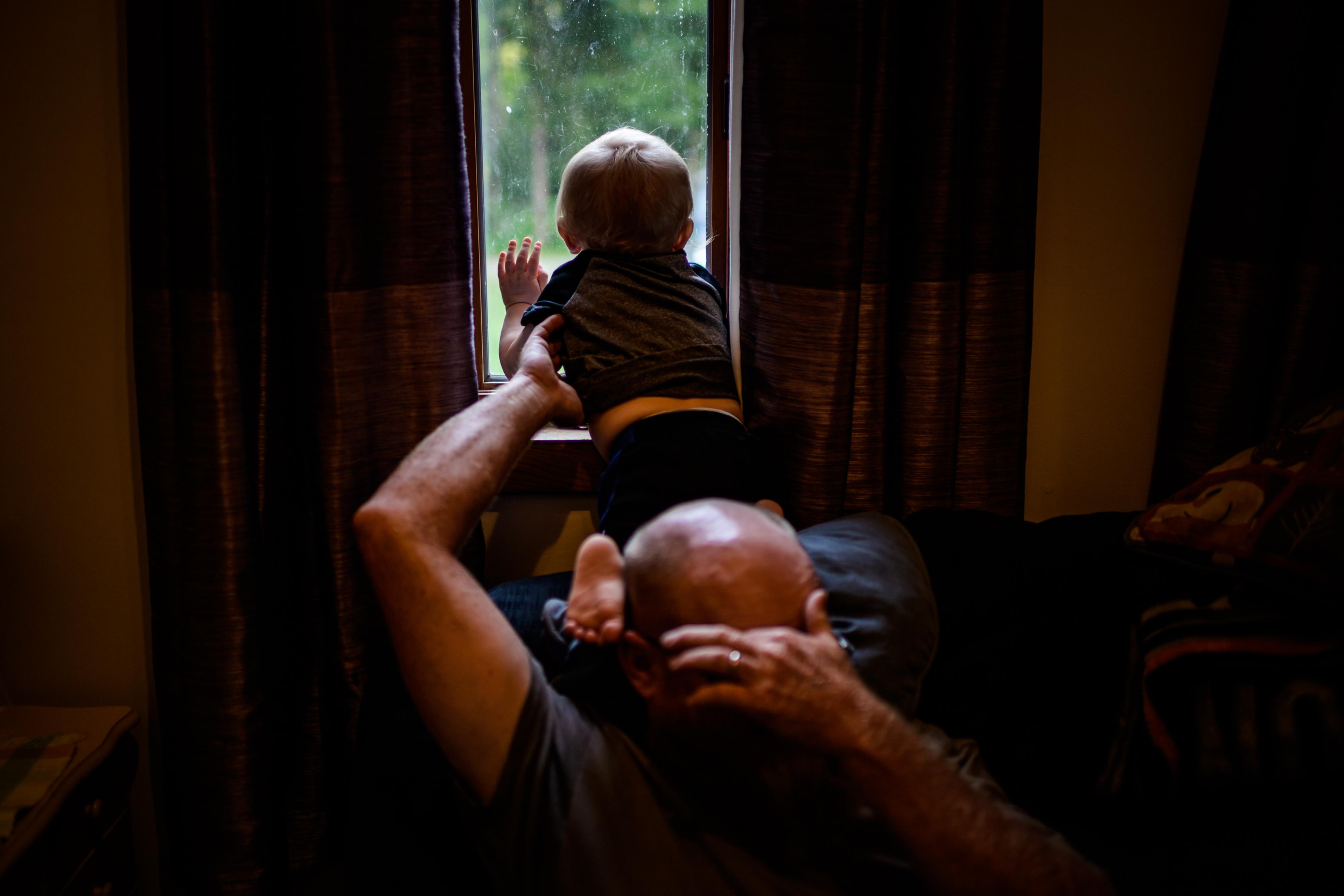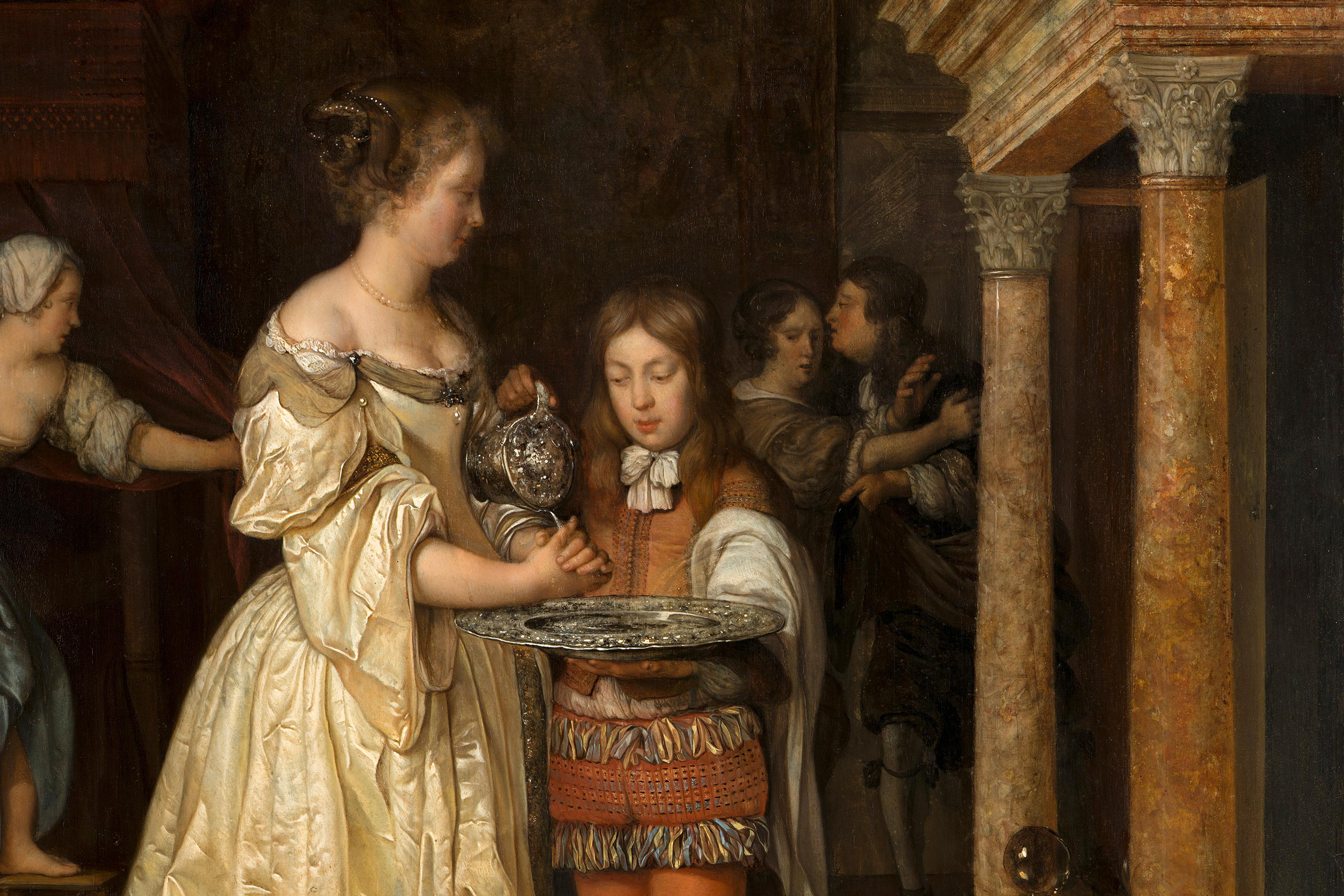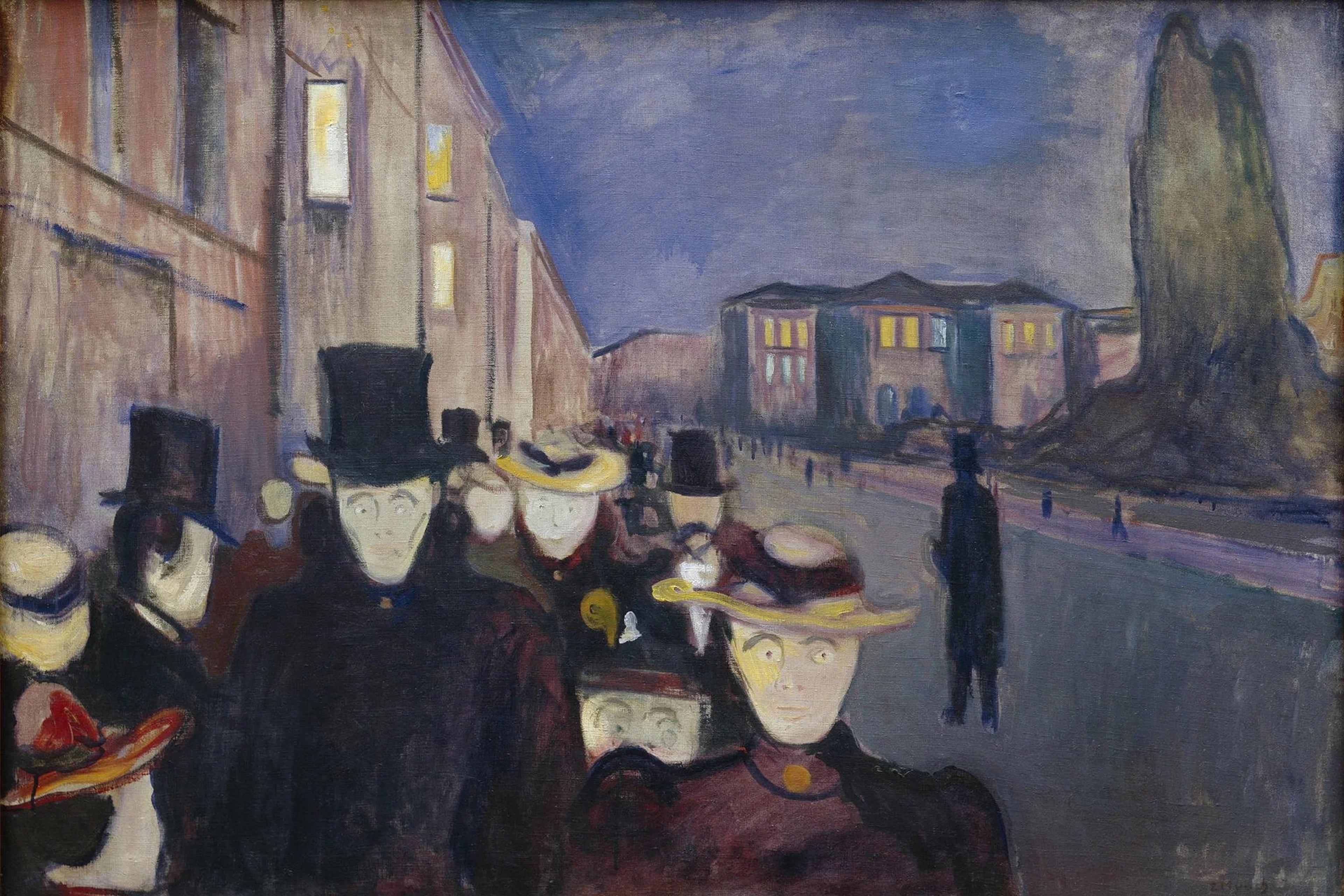Is thinking about ethics pathological? When a person rewashes her hands despite knowing that they’re already clean, it’s pathological. Is it similarly pathological to ruminate about what we should do?
Some people literally do have ‘moral OCD’, or ‘scrupulosity’, named after the scrupulous small concerns that can plague a person. This is a type of obsessive-compulsive disorder that focuses on moral or religious issues. Obsessive-compulsive disorder can take on many forms, but it is most visible by its meticulous and rigid compulsions, such as hand-washing and lock-checking. What makes it a disorder is that the compulsive behaviours are caused by an underlying anxiety. Intrusive, unwelcome thoughts or ‘obsessions’ provoke the person’s anxiety, which leads to the ‘compulsions’ that the person performs in order to reduce her anxiety.
Imagine that nagging feeling of having left the stove on as you leave the house, but instead it’s an unshakable thought that you might have touched a germ-covered surface and could now be spreading those germs everywhere. You don’t know what you touched, but the worry that your hands are unclean feels like your brain’s way of telling you that you did.
You wash, but the feeling that your hands might still be dirty goes away only briefly. Your worry does go away, however, if you wash in a particular way, or a certain number of times. This then becomes a ritual, one that you can even perform to keep the worry from arising. You still recognise that it’s highly unlikely that your hands are dirty after just a normal wash, but you rationalise your elaborate actions by thinking that it’s possible you could infect – even kill! – someone with the germs from your possibly dirty hands, and isn’t it worth washing a few more times to reduce that risk?
Anxiety is normal. A little anxiety when walking out of the house or into an important meeting is the brain’s way of staying focused and alert for possible danger. The brain of someone with an anxiety disorder, however, signals danger despite reassurance that there is no danger worth worrying about. Because the anxious signal remains, the person explains it to herself in a couple of ways. She focuses on dangers that are not easily reassured: how can I know that my hands are completely clean? No easy reassurance will challenge that anxiety. And she justifies why someone should be anxious: it’s possible to infect others.
Moral OCD shares these features with OCD in general. Since scrupulosity is most often studied in religious cases, these behaviours and thoughts commonly take on a religious cast: a Catholic, for example, confesses minuscule or imagined sins to multiple priests throughout the day, unwilling to accept absolution from any of them because she feels that no priest understood the gravity of her sins. But religious and secular people alike worry, and they understand their worries to be about hurting themselves or others in physical, emotional or even less tangible ways.
Cases of scrupulosity share a common core of traits. First, a person with scrupulosity has chronic doubt. She constantly feels that she is sinning or disappointing God even without knowing how. And she feels she has to do something to resolve that intolerable uncertainty. Second, she has perfectionist standards and impossibly high ideals, at least for herself, which make it easier to doubt that she has reached them. Third, she takes even her passing thoughts to be morally significant. If she has an unwelcome thought of inappropriately touching a child, for example, she reacts as if she has actually committed a sin, not just imagined it. Finally, she takes herself to be singularly responsible by her own actions for many things that happen in the world that are not under her control.
What does this look like in practice? A person with scrupulosity could spend hours a day praying, worrying that he must get his prayers exactly right or his family could be hurt. He wonders with each prayer if he had the right intention or whether some sinful impulse had crept in, so he repeats until it feels right. Or a person worries that a stray comment to a stranger might have led that person to sin, so she spends days tracking down that person to clarify her innocuous comment. Or a person insists on greeting everyone she sees in order to ‘love thy neighbour’, circling back to catch people she missed. Or a person checks and rechecks receipts to make sure he didn’t inadvertently steal from a business by underpaying.
Those with scrupulosity might realise that their actions are atypical – but it’s also atypical to act morally in a morally mediocre world. People who give 20 per cent of their income to charity act atypically too, but that doesn’t make their action an indication of a disorder. So recognising that the actions are atypical is compatible with thinking that these are the actions that morality requires. And their chronic doubt about their actions is also compatible with moral judgments: saints often wonder if they are sinners, and philosophers professionally doubt even the most obvious.
There are important differences, though, between the anxious judgments of scrupulosity and genuine moral judgments. To begin with, scrupulosity is driven by a need to quiet one’s anxiety, and ethical enquiry can be motivated by any number of things other than anxiety: curiosity, a conversation with others, a desire to get tenure. But ethical enquiry can also be driven by a genuine anxiety. Philosophical wonderings are not always the dispassionate pursuit of truth: when faced with ignorance, especially about moral questions, many of us feel discomfort and a focused desire to figure things out.
The difference between moral enquiry and scrupulosity is how the person’s anxiety, if any, shapes that enquiry. Anxiety focuses our attention. That focus, in an anxiety disorder, can make one’s thoughts inflexible. The person with scrupulosity, anxious that she has sinned, cannot go about her daily life while feeling like a sinner, and her anxiety keeps her feeling sinful. It also keeps her focused on what might explain why she is a sinner and what she has to do to nullify that.
She explains her own anxiety by citing what can’t be easily reassured, like possibly offending someone or not having the right intention in acting. Those make sense of her background anxiety. Yet her compulsions focus on what she can directly control, like repeating a prayer 18 times, and she then takes herself to be uniquely responsible for those actions. She focuses on what she can control to handle the anxiety that she cannot.
What the person with scrupulosity overlooks is that morality makes multiple demands on us simultaneously. A genuine moral judgment has to consider more than just a single issue at a time. A waiter can give a narrow justification as to why, if all else is equal, he ought to doublecheck that no solvents from the storeroom inadvertently ended up in the food he is serving. But all else is not equal: it was all but impossible for the solvents to end up in the food, and the time spent checking the storeroom is time he could have spent doing other things with some real moral value, such as having a conversation with a lonely diner or helping a parent wrangle kids to the table.
What keeps a person with this much anxiety from seeing the forest of moral issues is that their anxiety feels like it will respond only by focusing narrowly on just this one: checking the solvents or repeating a prayer. Which means that the person’s actions are ultimately shaped by a desire to reduce their anxiety and not solely by consideration of morality more generally.
Is it possible that ethical enquiry in general is driven by anxiety? Perhaps. But scrupulosity demonstrates how simply being motivated by anxiety needn’t be pathological. It becomes pathological if the anxiety also shapes the ethical enquiry, making it focused and inflexible. Worrying about doing the right thing isn’t pathological: letting one’s worries dictate what the right thing is would be.








